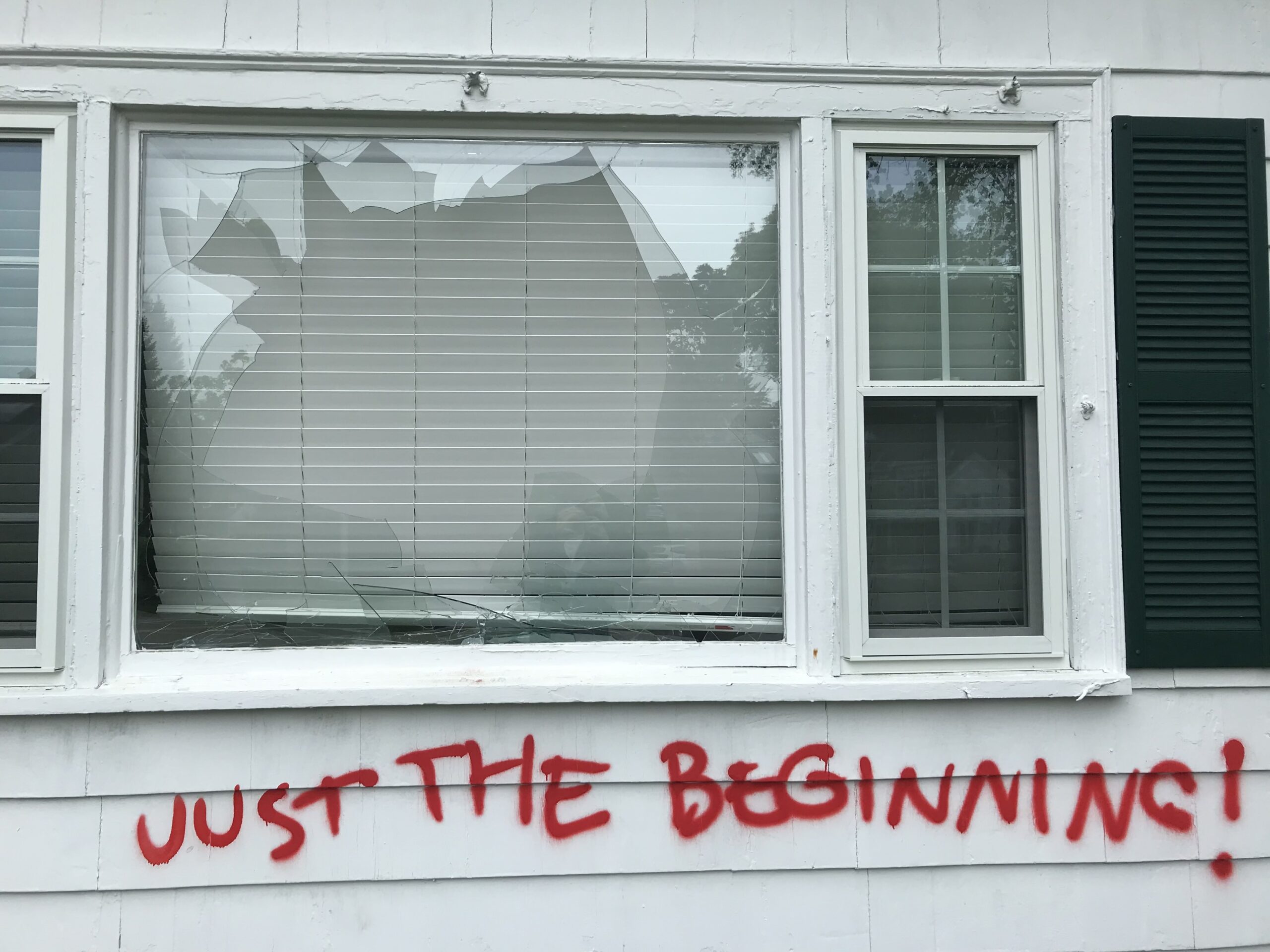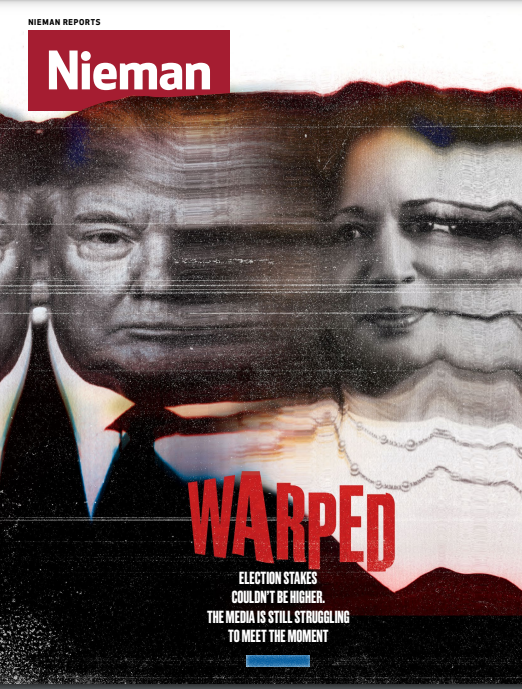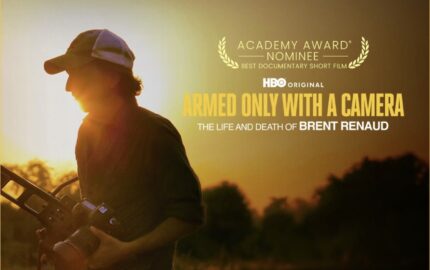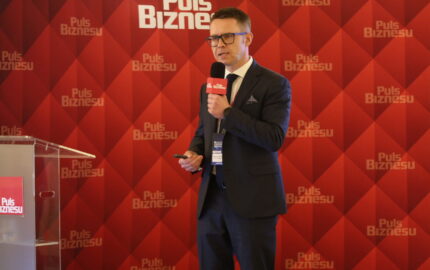On the morning of April 25, 2022, I woke up to alarming texts from the team I had been working with. Three homes connected to my colleagues at New Hampshire Public Radio had been vandalized. Bricks thrown through windows, “C---” spray-painted in bright red. The vandals hit the homes of NHPR’s news director, reporter Lauren Chooljian’s parents, and a home Lauren used to live in.
One month later, the vandals hit again. This time, they found Lauren’s actual home. They hurled a brick through her front window and scrawled “JUST THE BEGINNING!” under it. They also hit her parents’ house again.
We suspected the vandalism was connected to Lauren’s reporting detailing multiple allegations of sexual misconduct by a powerful addiction treatment entrepreneur. (Subsequent federal indictments confirmed the connection.) This all happened as we were expanding that reporting on the addiction treatment industry for a podcast called "The 13th Step." I was the project’s lead editor, and this was the first time in my more than 20-year career that I was encountering such a challenge.
In the face of this vandalism, we made a decision that changed the shape of our project: Lauren was now part of the story, and we decided she would be allowed to report on herself in the podcast.
Early on, we had all expressed fatigue with podcasts in which the host/reporter is the central character and narrates their “journey.” It had become a cliché and sometimes crossed ethical lines. It was essential to us that the podcast center the women who had come forward to report abuse, despite real fears.
But now, Lauren’s own experience — of being threatened while reporting and, subsequently, sued — reinforced one of the goals of our project: to illustrate the many reasons that women don’t or can’t come forward to report abuse by powerful people, even after the #MeToo movement changed the discourse around sexual misconduct.
As an audio producer and editor, I have always felt as though I work in a strange limbo between traditional journalism and the craft of narrative storytelling. Most of the time, the principles of journalism and narrative support each other. But sometimes, they clash.
This had the potential to be one of those times. Many newsrooms would consider Lauren reporting on herself to be a conflict. But it felt unavoidable to us, in this narrative audio format. Not sharing it would be untruthful. So we set some rules of our own.
First, Lauren’s personal experiences would not begin the podcast, even though many podcast shops might see that as the obvious, scintillating starting point for a tale they would sell as “true crime.” Starting with Lauren might imply that her experiences were worse or more important than her sources’.
Second, Lauren’s personal story would be contained in a few, specific spots in the series, rather than infused throughout all of it. And she would explain to the audience why she was sharing these experiences.
Third, we would focus on facts rather than feelings. What happened to Lauren, her parents, and her news director was upsetting, but we didn’t need to narrate the emotional impact for listeners; they could infer it.
You can listen for yourself and decide if we succeeded. Most importantly for me, we upheld a principle of both journalism and audio storytelling that I hold dear: transparency. The 13th Step didn’t just tell a story, it told listeners how and why we were telling it. The podcast, which was a Pulitzer finalist in the audio reporting category, illustrated the complexities of reporting on addiction and sexual misconduct, and what those complexities show us about how power operates. At a moment when trust in the American media is at an all-time low, we tried to instill trust by walking into the mess rather than writing around it.




